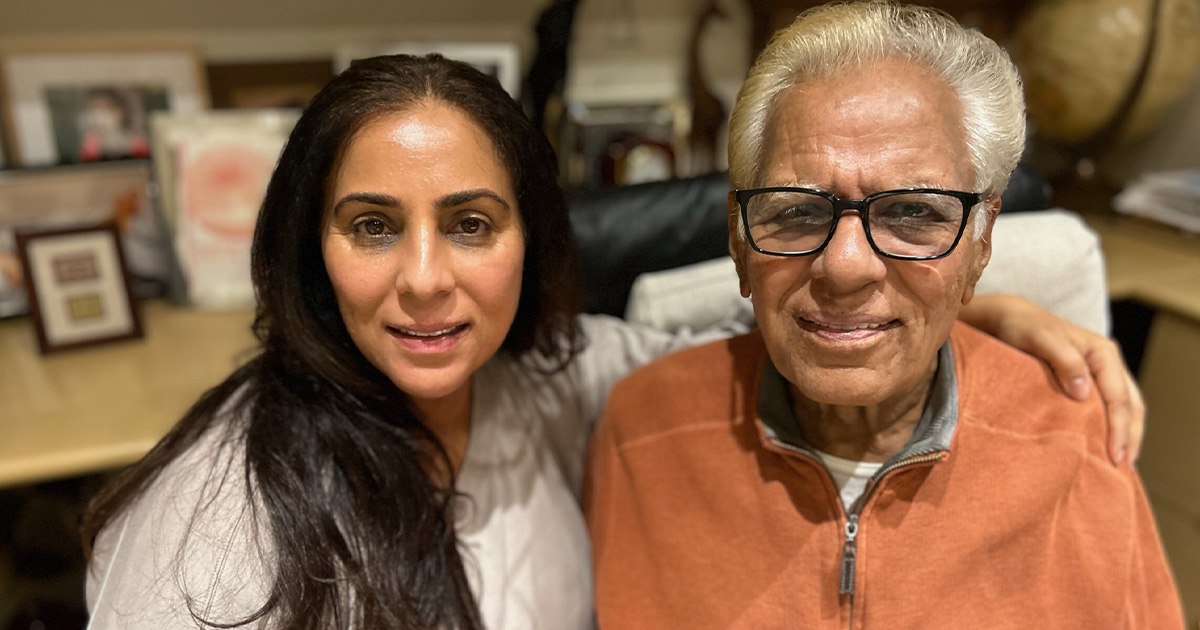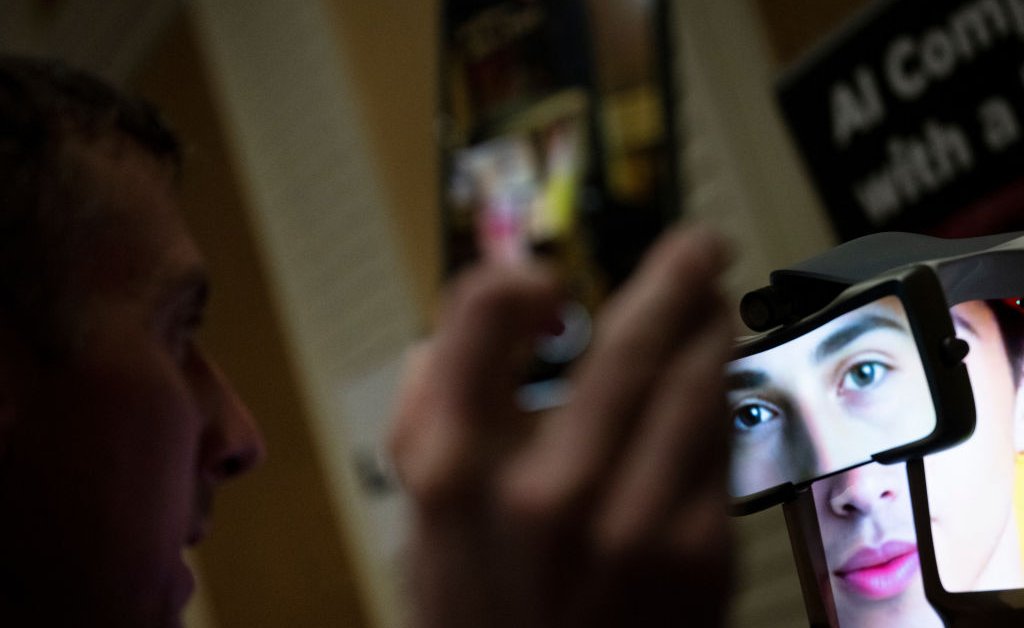Artificial intelligence (AI) has the potential to revolutionize healthcare delivery, attracting the attention of numerous healthcare professionals who are exploring its capabilities and implementing systems to assist in care management and empower patients to take control of their well-being.
Dr. Renee Dua, the founder of Heal, which provides physician house calls in New York City, is also the visionary behind Together by Renee, a healthcare assistant app that harnesses generative AI technology.
Together by Renee, a no-cost application designed for a broad audience but particularly advantageous for elderly individuals and their caregivers, concentrates on simplifying the coordination of treatment, medication, and daily healthcare routines. This app, endorsed by the U.S. Department of Health and Human Services and the AARP, has undergone rigorous testing and validation procedures.
Dr. Dua envisions AI’s ability to offer personalized treatment remotely, eliminating the necessity for in-person physician visits. She also highlights the role of AI in fostering advancements in telemedicine and advocates for ethical considerations regarding AI integration in healthcare.
In a discussion with Healthcare IT News, Dr. Dua sheds light on the transformative potential of AI in healthcare, with a specific focus on the Together by Renee app.
Q. How can AI revolutionize personalized treatment without the physical presence of a physician’s office?
A. Incorporating AI to tailor personalized treatment remotely signifies a significant advancement in healthcare delivery. By utilizing extensive datasets containing patient histories, research outcomes, and treatment protocols, AI can provide tailored healthcare recommendations.
For example, AI algorithms can predict individual health risks by analyzing patterns in medical records, lifestyle choices, and genetic information. This enables proactive and preventive care, allowing for early intervention in potential health issues.
Furthermore, AI-powered platforms can offer real-time monitoring and guidance, particularly beneficial for chronic conditions that require ongoing management. By amalgamating data from remote monitoring devices and mobile applications, AI can continually assess health indicators, notifying both patients and healthcare providers of any concerning trends.
This capability is especially valuable for underserved communities or individuals in remote locations with limited healthcare access.
Moreover, AI plays a crucial role in mental health treatment by identifying speech patterns indicative of mental health disorders. Through natural language processing, AI can recognize signs of conditions like depression and anxiety, facilitating timely interventions. This application becomes increasingly vital as mental health issues escalate, and healthcare systems confront resource constraints.
Q. How can AI drive innovation in telemedicine, and what outcomes are anticipated?
A. AI is poised to stimulate significant innovation in telemedicine, enhancing healthcare delivery across various domains. Primarily, AI enhances diagnostic accuracy in telemedicine settings by analyzing medical images and patient data to assist healthcare providers in rapid and precise disease diagnosis, even in the absence of physical proximity.
This is particularly advantageous in fields such as radiology and pathology, where AI complements the expertise of medical professionals.
AI’s capacity to personalize telemedicine experiences for patients by tailoring healthcare recommendations based on individual data fosters improved patient engagement and adherence to treatment plans, ultimately leading to enhanced health results.
Additionally, AI simplifies administrative tasks in telemedicine, ranging from appointment scheduling to managing prescription renewals and patient follow-ups. Automating these processes alleviates the workload on healthcare providers and support staff, allowing them to concentrate more on patient care within a healthcare system already under pressure.
Furthermore, AI-driven chatbots and virtual assistants provide continuous support to patients, addressing inquiries and offering guidance, particularly beneficial for effectively managing chronic conditions.
Q. What are your perspectives on the ethical considerations related to AI in healthcare?
A. The integration of AI in healthcare introduces several ethical challenges that require thoughtful deliberation. Foremost among these is the issue of privacy and data security. Given that AI systems rely on extensive personal health data, safeguarding the confidentiality and security of this information is crucial.
Ensuring transparency in how AI algorithms utilize data to make decisions, especially in diagnostic and treatment recommendations, is another ethical imperative.
Addressing potential biases in AI algorithms is critical. Insufficient diversity in the data used to train these algorithms can lead to biases resulting in unequal treatment among different demographic groups. Ensuring that AI systems are trained on diverse datasets is essential to mitigate biases and promote equitable healthcare delivery.
Lastly, establishing clear accountability guidelines is essential when AI systems are involved in healthcare decision-making processes. Clarity on responsibilities—whether with the healthcare provider, AI developers, or the AI system itself—is crucial to safeguard patients’ rights and provide recourse in case of errors or malpractice. Currently, AI should function as a supportive tool to assist healthcare professionals rather than replace them.
Q. Can you provide an overview of Together by Renee, its features, and user demographics?
A. Together by Renee is a healthcare app that leverages AI to streamline healthcare task management, with a particular focus on aging adults, individuals with chronic conditions, and their caregivers. This app exemplifies how AI can simplify and enhance healthcare delivery.
Using generative AI technology, the app facilitates the effortless management of various healthcare tasks. From measuring vital signs like blood pressure through simple actions such as taking a selfie to utilizing voice recognition for early detection of mental health symptoms, Together by Renee offers a user-friendly approach to health monitoring.
The app’s innovative feature enables it to generate user health profiles by scanning videos of pill bottles, allowing it to track medical conditions, healthcare providers, and medication dosages. This non-intrusive monitoring method enhances accessibility, especially for elderly users and those managing chronic illnesses.
Moreover, Together by Renee assists in appointment scheduling, prescription refills, and healthcare task management through smartphone camera and voice recognition, eliminating the need for manual data entry. This functionality is invaluable for overwhelmed caregivers, providing them with a convenient tool to efficiently manage their loved ones’ health.
The app’s goal is to consolidate all aspects of healthcare, from monitoring vital signs to assessing mental health, into a single intuitive platform. This initiative holds immense potential, particularly for the vast population of aging Americans living with multiple chronic conditions, as well as the caregivers who often feel overwhelmed by the complexities of healthcare management.
For the latest healthcare IT updates, follow Bill Siwicki on LinkedIn: Bill Siwicki For inquiries, contact Bill at: bsiwicki@ himss.org Healthcare IT News is a publication by HIMSS Media.










